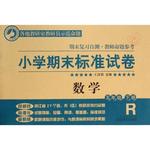题目内容
Robert Spring, a 19tth century forger(伪造者),was so good at his profession that he was able to make his living for 15 years by selling false signatures of Americans. Spring was born in England in 1813 and arrived in Philadelphia in 1858 to open a bookstore. At first he became rich by selling his small but real collection of early U.S. autographs(手稿). Discovering his ability at copying handwriting, he began imitating signatures of George. Washington and Ben Franklin and writing them on the title pages of old books. To lessen the chance of detection(察觉), he sent his forgeries to England and Canada for sale.
Forgers have a hard time selling their products. A forger can’t deal with a respectable buyer but people who don’t have much knowledge in the field. Forgers have many ways to make their work look real. For example, they buy old books to use the aged paper of the title page, and they can treat paper and ink with chemical.
In Spring’s time right after the Civil War, Britain was still fond of the Southern states, so Spring invented a respectable maiden lady known as Miss Fanny Jackson, the only daughter of General “Stonewall” Jackson. For several years Miss Fanny’s financial problems forced her to sell a great number of letters and manuscripts(手稿). Spring had to work very hard to satisfy the demand. All this activity did not prevent Spring from dying in poverty, leaving sharp-eyed experts the difficult task of separating his forgeries from the originals.
1.Why did Spring sell his false autographs in England and Canada?
A. There is a greater demand there than in America.
B. There was less chance of being detected there.
C. Britain was Spring’s birthplace.
D. The price were higher in England and Canada.
2. After the Civil War, there was a great demand in Britain for
A. Southern money
B. Signatures of George Washington and Ben Franklin
C. Southern manuscripts and letters
D. Civil War battle plans
3.According to the passage, forgeries are usually sold to
A. sharp-eyed experts B. persons who aren’t experts
C. book dealers D. owners of old books
4. Who was Miss Fanny Jackson?
A. The only daughter of General “Stonewall” Jackson
B. A little –known girl who sold her father’s to Robert Spring
C. Robert Spring’s daughter
D. An imaginary person created by Spring.
1.B
2.C
3.B
4.D
【解析】略

 小学期末标准试卷系列答案
小学期末标准试卷系列答案Almost 55,000 people who have had a major impact on British society are profiled in a new 60-volume book that has taken 12 years to compile.
It has cost more than £25 million and taken 10,000 writers to update the Oxford Dictionary of National Biography.
Murder victims Stephen Lawrence and James Bulger are among those joining the likes of Queen Victoria and Gandhi.
The new version of the dictionary, which was founded in 1882, costs £7,500 and takes up 12 feet of shelf space.
Projects director Robert Faber said Stephen Lawrence was included because his death triggered "dramatic developments in British policing and social policy".
Women make up 10% of the entries - double the previous share - and include Queen Elizabeth I, Dusty Springfield, Linda McCartney and Virginia Woolf, whose father compiled the first edition.
Alongside the famous names are lesser known individuals such as the inventor of snooker, army reservist (预备役军人) Neville Chamberlain.
Stephen Lawrence and James Bulger were both included because of the "overwhelming soul-searching (真挚的自我反省、深思) and examination of education and social policy" which followed their deaths.
Mr Faber said: "These are not just people who were killed but people who had an impact. Jill Dando is there as much for her career but also because her death became a public event.
"So many of these people have seized the public imagination and have contributed to public debate."?
|
1. |
|
2.It can be inferred that Jill Dando _____.
|
A.died in a case of murder which drew the public much attention |
|
B.isn’t included in the Oxford Dictionary of National Biography |
|
C.is the director of the Oxford Dictionary of National Biography |
|
D.is included in the Oxford Dictionary of National Biography only for her death |
3._____ are collected in the Oxford Dictionary of National Biography.
|
A.Those who were murdered in history |
B.Those who have shaped Britain |
|
C.Those who are famous all over the world |
D.Those who live in Britain |
4.How much does a volume of the new version cost on average?
|
A.More than £25million. |
B.More than £400, 000. |
C.£7, 500. |
D.£125 |